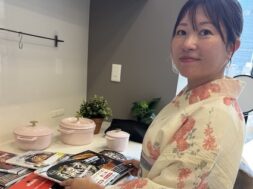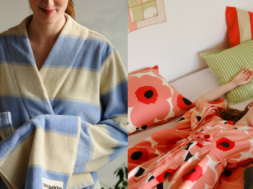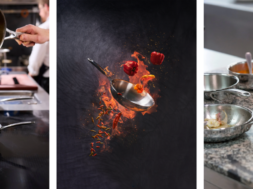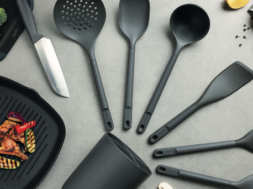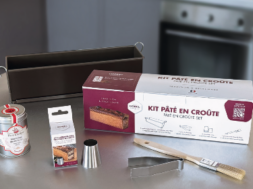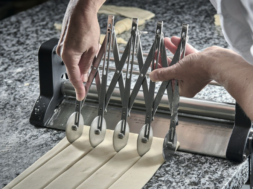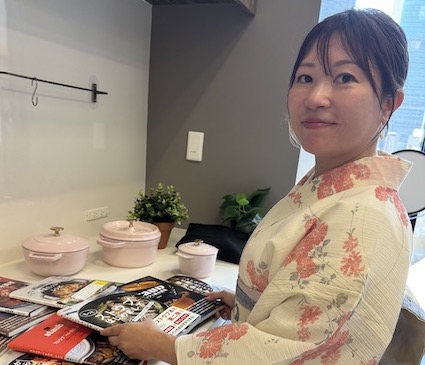
Yuka Ohashiambassador of Staub in Japan
In Tokyo, we met Yuka Ohashi (@harujihon), an emblematic figure of the Japanese culinary scene. A mother of two children, based in Atsugi, this passionate advocate of family cooking and proud ambassador of Staub cocottes is making her mark on the gastronomic stage.
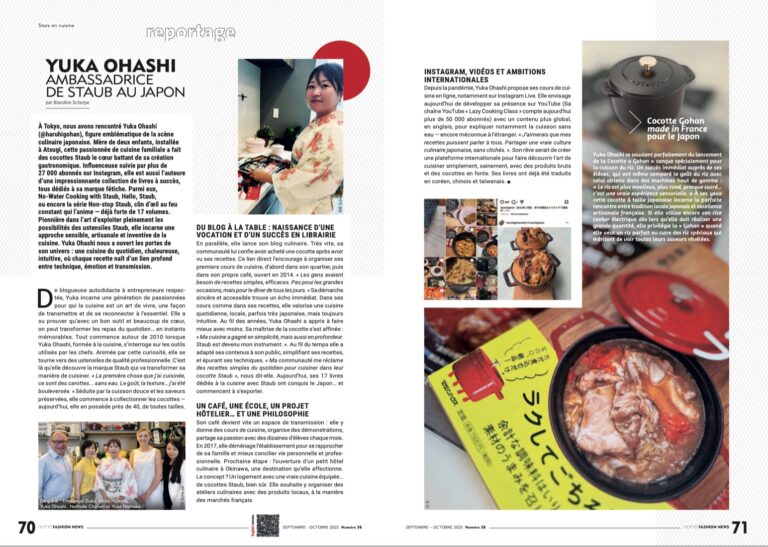
A culinary influencer with over 27,000 Instagram followers, she now boasts an impressive collection of cookbooks, all dedicated to her favorite brand. Among them, No-Water Cooking with Staub, Hello, Staub, or the series Mon-Staub Stab, already 17 volumes strong and still fueled by her passion. A pioneer in fully exploring the possibilities of Staub utensils, she embodies a sensitive, artisanal, and inventive approach to cooking. Yuka Ohashi opened the doors of her universe to us: an everyday cuisine that is warm, intuitive, and where each recipe is born from a deep connection between technique, emotion, and transmission.
From blog to table: the birth of a vocation and a bookstore success
At the same time, she launched her culinary blog. Very quickly, her community gave her the vocation to write and share her recipes. This direct connection encouraged her to organize cooking classes, workshops for children, and soon after, to publish her own recipe book. “The best cooks know how to create simple, effective recipes. Not for grand restaurants, but for everyday cooking.” In her pages, she shares her culinary discoveries, from traditional dishes to modern inspirations, seasonal recipes, and everyday meals, as well as festive dishes highlighting family cooking: rice, vegetables, fresh produce, and simplicity for an intuitive diet. Her publisher gave her an ever-growing readership. At least five cookbooks already authored by Yuka testify to this progression in simplicity and efficiency — “My cooking is not complicated but is founded on an artisanal spirit.” Yuka publishes regularly, offering her audience accessible content, simplifying recipes but always with a sense of rigor. She has become a culinary authority and established herself as an ambassador of Staub, her favorite cocotte. Today, 17 published books mark her influence on cooking in Japan — and from Japan — and are already enjoying success abroad.
A café, a school, a hotel project… and a philosophy
Yuka Ohashi often describes herself as a craftswoman of transmission: she combines cooking classes, live demonstrations, and shares her passion with dozens of students each month. Together with her family, she envisions creating a place dedicated to Staub: a café and a cooking school that would bring together enthusiasts and professionals alike. The next step: the opening of a small traditional hotel in Okinawa, a destination she holds dear. The concept? To design it with a restaurant specialized in Staub cooking, of course, along with a dedicated culinary demonstration space. She also hopes to organize culinary workshops with local chefs, inspired by French-style markets.
Instagram, videos and international ambitions
Since the pandemic, Yuka Ohashi has been offering her cooking classes online, notably on Instagram Live. She is now considering expanding her presence on YouTube (Her channel “Zayu Cooking Class” already counts more than 50,000 subscribers) with more global content, in English, to explain waterless cooking — still relatively unknown abroad. “I would like my recipes to speak to everyone. To share a true Japanese culinary culture, without clichés.” Her dream is to create an international platform to introduce the art of cooking simply and healthily, with fresh ingredients and natural seasonings. Her books have already been translated into Korean, Chinese, and Taiwanese.
Gohan cocotte made in France for Japan
Yuka Ohashi still remembers her first encounter with Staub cocottes: “Just a simple lid that gave cooking a unique taste and preserved flavors.” Since then, her passion has only grown: “Rice becomes softer, more tender, almost sweet…” This entire Japanese quality is embodied by the cocotte: a meeting between local Japanese tradition and French culinary excellence. While she still uses it to reinforce the authenticity of daily dishes, she also highlights the uniqueness of the “Gohan” cocotte, produced in limited quantities and of remarkable quality. A culinary choice that remains rare in Japan, making it all the more precious, since “a master craftsman made this cocotte for you.”
Source: Home Fashion News Magazine – September 2025 (HFN58)
